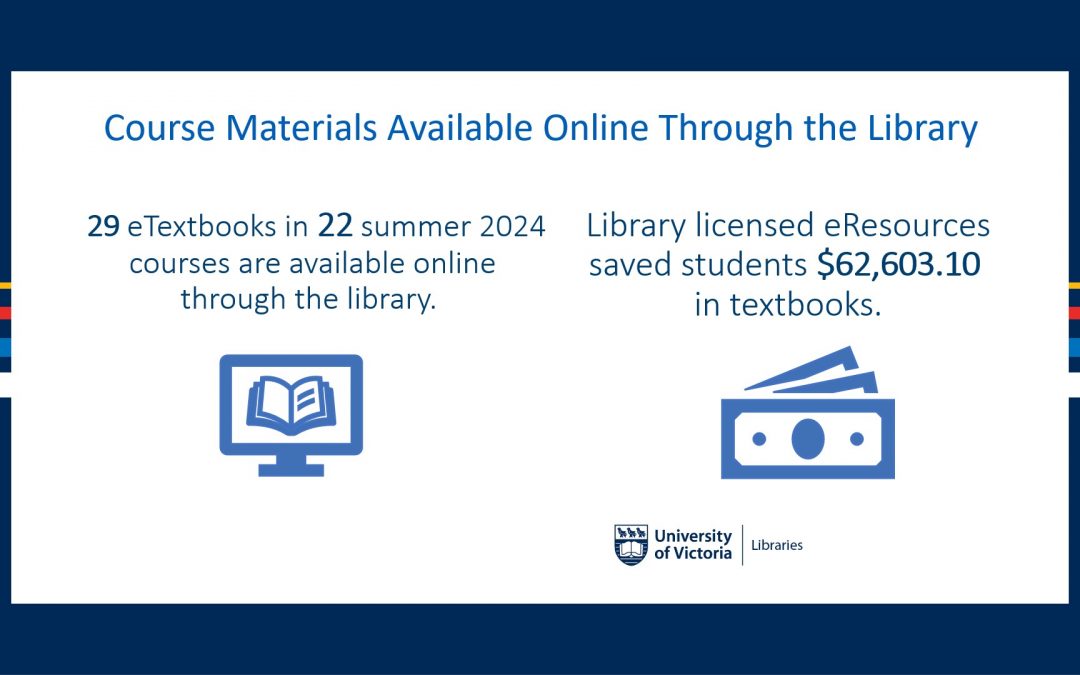
by Madison Fernway | Jun 25, 2024 | News, UVicSpace
June 25, 2024 | Vancouver Sun via UVic News British Columbia’s school districts are gearing up to curb digital distractions. By September, they aim to limit cellphone use during school hours. In Mission, for example, the ban will extend to lunchtime for Grade 9...

by Kristen De Jager | May 17, 2024 | Events, Open education
eTextbooks for Students (Summer 2024) We are continuing with UVic Libraries etextbooks for students project, which began in fall 2021. The project’s goal is to track the use of library licensed ebooks assigned in courses for the summer term. The project...
by Jennifer Ashmore | Jan 27, 2022 | News
Today marks International Holocaust Remembrance Day. This annual date serves not only as an official commemoration of the six million Jewish victims of the Holocaust, and the millions of other victims of Nazism, but to promote Holocaust education throughout the world....
by Stephanie Boulogne | Apr 2, 2020 | Open access, UVicSpace
This 2012 project by Stephanie Trowbridge, submitted as part of the Masters of Nursing – Advanced Practice Leadership, asks the question, “Nursing emergency preparedness education: Why do nurses need it? Do nurses have this knowledge?” Abstract: A...
by Danice Szabo | Oct 15, 2019 | News, Open access, UVicSpace
August 7, 2019| UVic News Bernadette Perry, a PhD student at the University of Victoria showcased her augmented reality video game Explorez during the Department of French and Faculty of Humanities April 29, 2019 forum French for the Future—Français pour...




